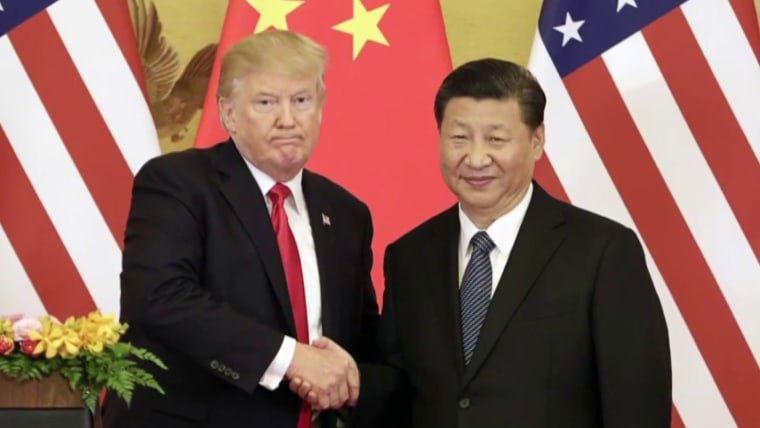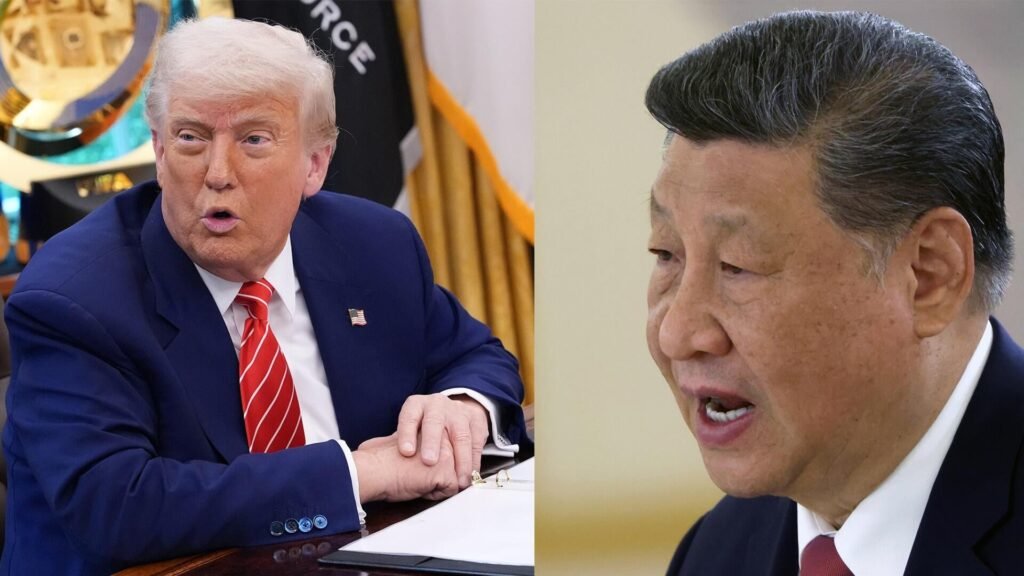Taipei, Taiwan
CNN
—
In the largest single foreign investment in US history, Taiwan Semiconductor Manufacturing Company has unveiled a $100 billion investment, drawing global attention and prompting concern in Taiwan.
TSMC, which produces more than 90% of the world’s advanced semiconductor chips that power everything from smartphones and artificial intelligence (AI) applications to weapons, will build two new advanced packaging facilities in Arizona, among others.
Here’s everything you need to know about advanced packaging technology, which has seen exponential demand growth along with the global AI frenzy, and what that means for the struggle between the US and China for AI dominance.
While the two countries have announced a temporary truce that rolled back disruptive three-digit tariffs for 90 days, the relationship remains tense because of ongoing feuding over chip restrictions imposed by the US and other issues.
Last month at Computex, an annual trade show in Taipei that has been thrust under the limelight because of the AI boom, the CEO of chipmaker Nvidia, Jensen Huang, told reporters that “the importance of advanced packaging for AI is very high,” proclaiming that “no one has pushed advanced packaging harder than me.”
Packaging generally refers to one of the manufacturing processes of semiconductor chips, which means sealing a chip inside a protective casing and mounting it to the motherboard that goes into an electronic device.
Advanced packaging, specifically, refers to techniques that allow more chips — such as graphic processing units (GPU), central processing units (CPU) or high bandwidth memory (HBM) — to be placed closer together, leading to better overall performance, faster transmission of data and lower energy consumption.
Think of these chips as different departments within a company. The closer these departments are to each other, the easier it is, and less time it takes, for people to travel between them and exchange ideas, and the more efficient the operation becomes.
“You’re trying to put the chips as close together as possible, and you’re also putting in different solutions to make the connection between the chips very easy,” Dan Nystedt, vice president of Asia-based private investment firm TrioOrient, told CNN.
In a way, advanced packaging keeps afloat Moore’s Law, the idea that the number of transistors on microchips would double every two years, as breakthroughs in the chip fabrication process become increasingly costly and more difficult.
While there are many types of advanced packaging technologies, CoWoS, short for Chips-on-Wafer-on-Substrate and invented by TSMC, is arguably the best known that was thrown under the limelight since the debut of OpenAI’s ChatGPT, which sparked the AI frenzy.
It has even become a household name in Taiwan, prompting Lisa Su, CEO of Advanced Micro Devices (AMD), to say that the island is the “only place that you can say CoWoS and everybody would understand.”
Advanced packaging has become a big deal in the tech world because it ensures AI applications, which require a lot of complex computing, run without delays or glitches.
CoWoS is indispensable to producing AI processors, such as the GPUs produced by Nvidia and AMD that are used in AI servers or data centers.
“You could call it the Nvidia packaging process if you want to. Almost anyone making AI chips is using the CoWoS process,” said Nystedt.
That is why demand for CoWoS technology has skyrocketed. As a result, TSMC is scrambling to ramp up production capacity.
In a visit to Taiwan in January, Huang told reporters that the amount of advanced packaging capacity currently available was “probably four times” what it was less than two years ago.
“The technology of packaging is very important to the future of computing,” he said. “We now need to have very complicated advanced packaging to put many chips together into one giant chip.”
If advanced fabrication is one piece of the puzzle in terms of chip manufacturing, advanced packaging is another.
Analysts say having both pieces of that jigsaw in Arizona means the US will have a “one-stop shop” for chip production and a strengthened position for its AI arsenal, benefitting Apple, Nvidia, AMD, Qualcomm and Broadcom, some of TSMC’s top clients.
“It ensures that the US has a complete supply chain from advanced manufacturing to advanced packaging, which would benefit the US’ competitiveness in AI chips,” Eric Chen, an analyst with market research firm Digitimes Research, told CNN.

Because advanced packaging technologies key to AI are currently only produced in Taiwan, having it in Arizona also reduces potential supply chain risks.
“Instead of having all eggs in one basket, CoWoS would be in Taiwan and also the US, and that makes you feel more safe and secure,” said Nystedt.
While CoWoS got its moment recently, the technology has actually existed for at least 15 years.
It was the brainchild of a team of engineers led by Chiang Shang-yi, who served two stints at TSMC and retired from the company as its co-chief operating officer.
Chiang first proposed developing the technology in 2009 in an attempt to fit more transistors into chips and solve bottlenecks in performance.
But when it was developed, few companies took up the technology because of the high cost associated with it.
“I only had one customer … I really became a joke (in the company), and there was so much pressure on me,” he recalled in a 2022 oral history project recorded for the Computer History Museum in Mountain View, California.
But the AI boom turned CoWoS around, making it one of the most popular technologies. “The result was beyond our original expectation,” Chiang said.
In the global semiconductor supply chain, companies that specialize in packaging and testing services are referred to as outsourced semiconductor assembly and test (OSAT) firms.
In addition to TSMC, South Korea’s Samsung and America’s Intel, as well as OSAT firms including China’s JCET Group, America’s Amkor and Taiwan’s ASE Group and SPIL are all key players in advanced packaging technologies.







